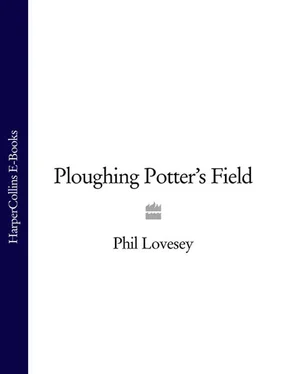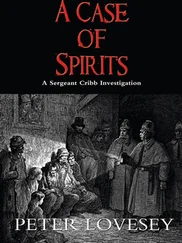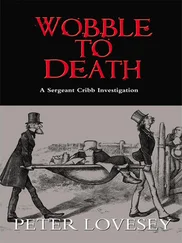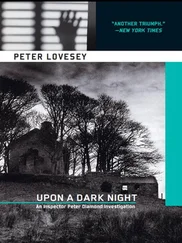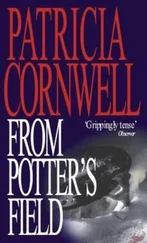London beckoned, and I Dick Wittingtoned to its heady call, winding up as a junior copywriter in a ‘mainstream’ ad agency on Dean Street.
Jemimah Eliott arrived, full of my imagined Eastern European promise, our brand-new hotshot account handler. I wrote the copy for the ads she presented to the clients. I went to one or two of these presentations, watching her wage a professional charm offensive on our clients in order to bolster the agency’s profits. She was good, very good, young, attractive. I fancied her like mad, but thought I had no chance. But we used to laugh a lot together, swapping gossip and tall stories about the guys with their own parking spaces who were for ever offering to take her away for a ‘formative think-tank regarding agency strategy for the forthcoming new business pitch’ – adspeak for a quickie in a hotel on expenses.
The senior rejected suits had, of course, discovered the source of their failure to bed her. Jemimah Eliott was, in their hugely embittered opinions, obviously a muff-muncher, rabid dyke, prick-teaser. I remember nodding sagely, laughing inside at their broken egos.
Then one day, just another unremarkable Wednesday, she came to brief me on some job or other. At the end she asked me out. As simple as that, just went staight ahead and asked. Unbelievable – but true.
We married in nineteen-eighty – me twenty-two; her twenty-three; two young kids standing at the altar, backs to the world of temptation and drudgery which lay waiting outside the church.
We agreed I would move to another agency, figuring working and living with one another wouldn’t necessarily make the ideal platform for a successful relationship. But perhaps we hadn’t fully thought it through. Trouble was, we still worked in the same business, only now we were professional rivals. Then disaster – in April 1987, my agency lost a major bit of business to hers. Jemimah was on the pitch team. Word soon got round. I was suspected of leaking details by a paranoid management reeling from the loss of a major blue-chip account. I was history shortly after, summoned by a phone call to a meeting with the smiling executive where a lukewarm pot of coffee, my P45 and a derisory payoff were the only things on the table.
I felt numb, made completely impotent by the decision. Not that the drop in money affected J and I in the slightest – in a bizarre irony, she’d been promoted to the board of her agency as a result of winning the business I’d been unfairly suspected of losing. We were richer than we’d ever been.
At first we were cool about it, spending the redundancy and planning a heavy freelance career from the ruins of my Filofax. One or two jobs rolled in, charity from old pals, giving Adrian the odd hundred quid here or there. But I grew to hate every minute of it. My heart wasn’t in it; I couldn’t bear to think of Jemimah leaving for work, while I sat upstairs in the heavy silence, de-roled, emasculated.
Like an idiot, I began to drink heavily, from the moment J left for the station until she returned, often finding me bombed on the sofa, useless. Days, time, dates, all became irrelevant as I woke each day with the sole aim to hit the whisky hard, dull the pain of failure. A never-ending supply of child-minders and nannies looked after Juliet and Guy, our two children, while I set about following a self-indulgent path to oblivion. It was crazy – a very dark and stupid time. I did things of which I’m still not proud, which even now I can’t fully explain or understand – but perhaps this is born out of a reluctance to do so.
There are some parts of all of us, I now recognize, which are graphically revealed in a crisis, and need one hell of a lot of honesty to accept. Even now, I have problems with the swiftness of my metamorphosis from happy-go-lucky copywriter to unstable drunk. I shudder at the ease with which I was unravelled.
Then came the move to Essex. Jemimah took charge and issued the ultimatum. She’d had enough. The family was moving from London. I could go with them, or stay and drink myself to death, but without her money or support. I was devastated, and in the selfish way alcoholics have, grew to hate her for making me choose.
Friends began calling less often, nervous of my unpredictable behaviour. Letters from estate agents began arriving. I was sleeping in the spare room when I could be bothered to get off the sofa. I had nothing in my life but alcohol.
One afternoon, Jemimah arrived back to tell me she’d exchanged on a place near Chelmsford. We had a God Almighty argument. And I hit her.
To this day, I hate myself for that drunken blow. She reeled back, shock and pain writ large on her reddening face. Juliet, our eldest, began to cry. I stormed out, spent two nights with a former colleague who persuaded me to get help. Thank God he did.
The message was stark. I was an alcoholic. Always would be. In less than six months I’d gone from a bloke who could have a couple of pints and leave, to someone who couldn’t face the day unless he had three large whiskys to take the edge off it. The only solution was to deny myself the solution. Either that or lose everything.
There were others there, that night. Broken individuals with similar tales, some spanning many years – but always at the heart, I felt, was a reluctance to look inside and face a particular truth which the alcohol blurred. I didn’t have the strength to face mine, preferring instead to soak up the group support, start the road to abstinence, persuade Jemimah that I recognized the problem, had taken steps to tackle it, was convinced I would beat it.
God love her – she tentatively agreed to ‘take me back’. I began the painful process of working out what I wanted to ‘do’ with the rest of my life, finally realizing what a privileged position I was in. I could start again, a new life, new friends, new interests, a phoenix rising from the ruins of my own self-destruction. And after a few weeks settling into our new home I was off the sauce, had joined a local gym and, more importantly, had the answer to my new direction.
During the move to Chelmsford, I’d rediscovered an old hoard of crime magazines I’d collected as a youngster, sensational articles offering a tabloid insight into the minds and motives of the evil perpetrators. Rereading them, I found myself fascinated by both the crimes and criminals, wondering what lay at the heart of the human psyche. It seemed incredible to me that humanity, universally acknowledged as an exploratory creature, could put a man on the moon without ever having fully explored his mind.
What shapes the most deviant individuals – brain dysfunction, environmental factors, the past, or perhaps a fatal cocktail of all three? Or is it simply that some of us are born with a terrifying predilection for evil?
The questions fought for space in my mind, as I began to realize I was developing an obsession with human psychology. I began subscribing to modern crime mags, immersing myself in the twisted worlds of current-day serial killers and psychopaths, child-murderers, Satanists and worse. And yet it seemed to me that the more I ‘discovered’ the less I actually knew. Each publication was merely concerned with sensational grisly details to ensure higher sales. Indeed, sometimes I found myself wondering about the appetite for such bloodthirsty material, speculating that perhaps we hadn’t actually evolved all that much since thousands turned up to witness a handful of Christians thrown to hungry lions.
But I too, was hooked. I may have tried to cloak my interest in academic terms, convincing myself I had superior motives for buying the glossy mags and tabloids, but the result was the same, I paid my money – I participated in the voyeuristic merchandising of insanity and pain.
Then one day – a breakthrough. Waiting in Chelmsford Central Library to check out another volume dedicated to the ongoing mystery of Jack the Ripper, I began leafing through a local prospectus. The University of Essex offered a reasonably well-thought-of degree in psychology. Perhaps this was a start then, a move in the right direction. After talking it over with Jemimah, we agreed I should apply. She was still happy enough working at the agency, and provided I really was serious about it, she’d fund my enthusiasm. I was taken on as a mature student the following September.
Читать дальше
